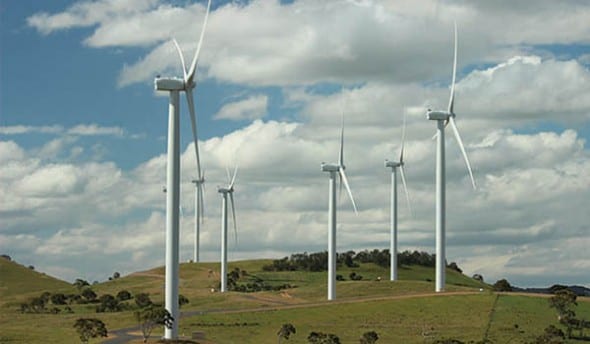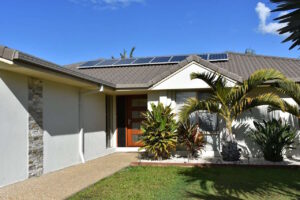The office of National Wind Farm Commissioner should be extended a further three years, and broadened to oversee the development of large-scale solar and battery storage in Australia, a new report has recommended.
The report, based on a review conducted by the Climate Change Authority, was commissioned by the federal government to review the role it created in 2015 to address community concerns over wind farms.
At the time, the creation of the new position ruffled feathers in the renewables industry, which widely considered it to be a hangover from the previous Abbott government, as part of a deal to keep the Coalition’s anti-wind cross-benchers happy.

But the role – which was filled by solar thermal industry veteran Andrew Dyer – has since proven valuable to both the wind industry and consumers, by highlighting the importance of social licence in large-scale renewables development.
According the CCA, the Commissioner’s efforts to respond to community complaints about wind farms had, in general, exceeded expectations, and resulted in a number of best practice recommendations that had improved the way the wind industry and governments worked with communities.
As Dyer himself noted in his second annual report to the government – published in March – there has been a reduction in nearly all categories of complaints against wind farms in the two years since his appointment.
“Most matters,” he said, “are resolved by the provision of factual information to the complainant, addressing the concerns raised and/or connecting the complainant to the appropriate contacts at the respondent organisation.”
For the renewable energy industry, the efforts of Dyer, alongside the findings of two separate independent reports, have brought home the importance of engaging constructively with communities, where large-scale projects are planned.
In Victoria, it has seen current state Labor government incorporate a community engagement and benefit sharing component into in its state renewable energy auction – as both an eligibility requirement and an evaluation criteria for bidding projects.
And as development ramps up to meet the federal government’s 2020 Large-scale Renewable Energy Target of 33,000GWh – community engagement and the maintenance of social licence is excpted be more important than ever.
“Your project relies on its social licence just as much as it might rely on its top wind resource,” said Australian Wind Alliance Victorian coordinator, Andrew Bray, at the 2018 Wind Industry Forum in March.
“Without a demonstration of genuine interest in public concerns, these investments will be lost.”
The CCA also sees the value in the wind commissioner’s role, and wants to see it benefit other large-scale renewable sectors.
“The Authority found that the Commissioner is playing a valuable role in assisting interested players work through issues related to wind farm development and operation,” the CCA report said.
“(He is also) well placed to help manage Australia’s transition to other forms of lower emissions electricity generation over the next few years,” it added, noting that a “modest increase in resources” would be needed to accommodate that.”
The CCA report also recommends “some enhancements” to the accessibility and transparency of the Commissioner’s complaints handling services, as well as measures to broaden public awareness of the role.
That’s because the report found community awareness of the existence of a Wind Farm Commissioner to be much higher in Victoria, with 55 per cent of all complaints coming from that state.
The CCA report also recognised that “not everyone” was satisfied with the outcomes of the Commissioner’s complaints handling process – a view that number of stakeholders had apparently expressed “in strong terms.”
It said that “stakeholders (often with concerns about noise or health issues) think the Commissioner should be able to overturn development conditions for wind farms that are already approved.”
But the report also noted that this was not within the powers of the Commissioner – a fact that perhaps those complainants did not understand, or accept.
“The Authority notes that the power to approve wind farms rests largely with state or local governments (in some circumstances, Australian Government approval is required).
“There would be significant legal and constitutional challenges in attempting to provide the Commissioner with powers to overturn wind farm development approvals,” the report said.








